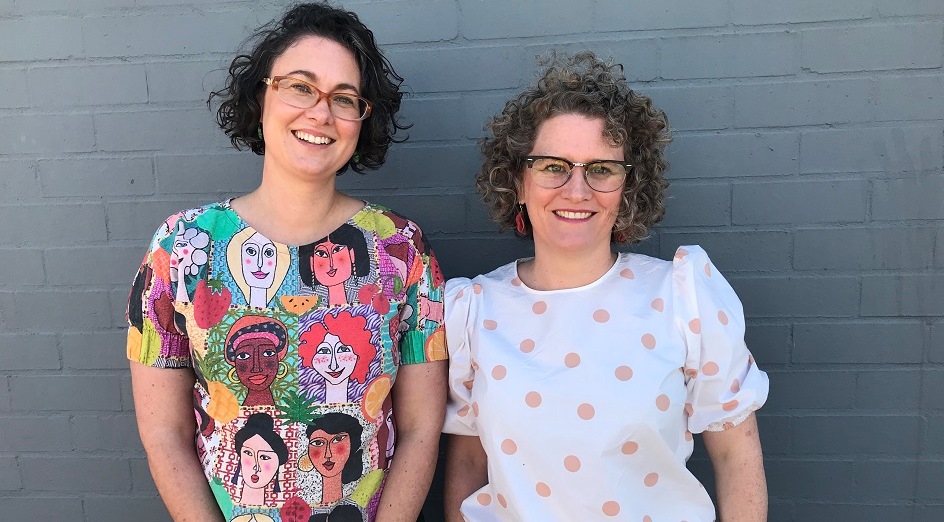
Dr Demelza Ireland and Dr Caitlin Wyrwoll explain how the importance of equitable health outcomes is embedded in the UWA curriculum.
Every day, 800 women die around the world from causes related to pregnancy and childbirth, and close to 2.5 million babies die within their first month of life.
For the past three years, we have collaborated across the University to instil in our students an awareness of unjust and inequitable health outcomes for women and girls worldwide.
We facilitate undergraduate students from human reproductive biology (School of Human Sciences) and women’s health (School of Biomedical Sciences and Medical School’s Division of Obstetrics and Gynaecology) to fundraise and host birthing kit assembly days. These kits are next opened by a woman in labour. To date, close to 1,000 students have taken part, with $20,000 fundraised and 5,000 kits assembled, which have been sent to countries such as India, Papua New Guinea, Uganda, Nigeria and the Democratic Republic of Congo.
Every woman has the right to a clean birth, yet many women worldwide do not have access to the resources required to achieve this. KIT International (formerly known as Birthing Kit Foundation of Australia) supports mothers and newborns through its clean birth initiative, which supplies a simple package to expectant mothers in under-resourced settings. The kits contain gloves, a plastic sheet to give birth on, soap, gauze, a sterile scalpel and string to tie the umbilical cord. For every 11 kits packaged, one maternal death is prevented.
An initiative like this brings together many people and showcases the excellence and professionalism of our students and their passion for the wellbeing of global communities. The community support and generosity for this initiative has been overwhelming. Donations were received from UWA students and their families, UWA professional and academic staff, alumni, industry, research collaborators and community organisations, including playgroups and hospital midwifery teams.
The successes of this authentic initiative come from it being embedded into multiple UWA units, clear alignment with learning outcomes and a partnership approach. Each year, we establish a working group comprising us and self-selecting students. Student leaders are empowered to engage with the broader student body, coordinate fundraising efforts, participate in media engagement and help with the logistics of the assembly day. Mobilising this taskforce is not an easy thing. Students are increasingly time poor and pressured by competing demands. This initiative works as students have real buy-in with the cause, permission to set the agenda and volunteering hours are recognised by the UWA Student Guild.
UWA recently endorsed two Grand Challenges: Climate change and A more just and equitable society (post-COVID-19). The last issue of Education Quarterly reflected on some of the deepest ethical and policy issues facing humanity and projects that bring together our individual and collective agency. We suspect there are many outstanding initiatives, just like our own, already underway on campus. How could there not be, in a melting pot like UWA full of current and future global leaders and big thinkers? Our students are already motivated and poised to confront these Grand Challenges. We are in a privileged position to provide them with the framework, resources and skills to achieve their dreams, while producing outcomes of global significance.
The reason we started this, in truth, came from a place of friendship, an enjoyment of working together and with students, and our personal commitments to advancing the status of women and girls worldwide. Our lack of strategic agenda above and beyond community need, we believe, was critical for the authenticity, success and organic growth of this experience. Based on this strong foundation and lesson learnt along the way, we are now looking to embed an element of scholarship in the future.
Together with colleagues in other schools within the University, we are now working towards publication of the model framework we have developed, measuring our impact and exploring new ways to engage with students and the wider community in formal and informal learning environments to further close the gap in gender health outcomes. We have yet to realise our full ambitions for the differences students can make towards inequities in women’s health.
Dr Demelza Ireland
Head of the School of Biomedical Sciences Education Unit
Coordinator of Women’s Health Teaching, Medical School Division of Obstetrics and Gynaecology
Dr Caitlin Wyrwoll
Senior Lecturer, School of Human Sciences
Coordinator of the Human Reproductive Biology Unit
